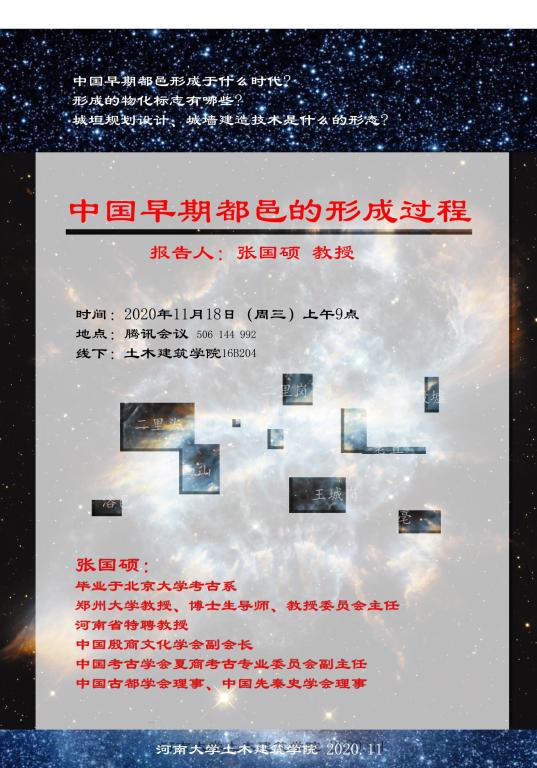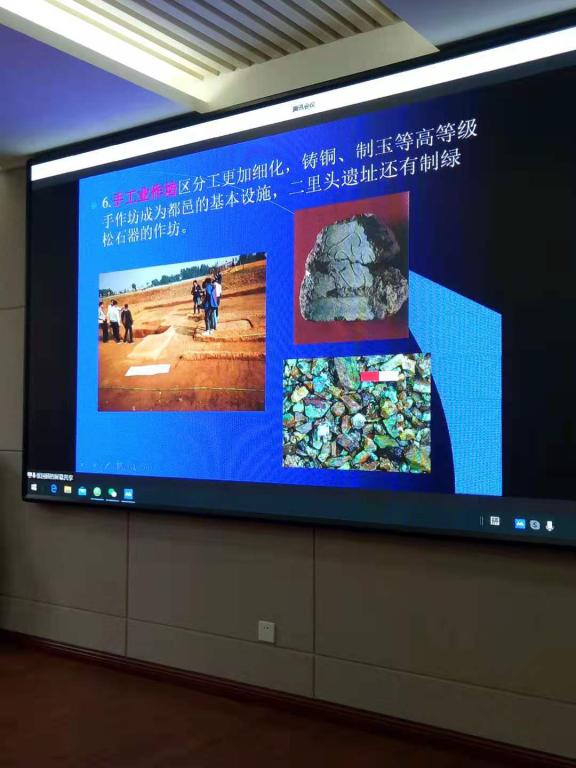
The contents of Professor Zhang's lecture mainly include the time when the early Chinese cities were formed, the physical and chemical signs formed, how they developed and changed, and the planning and design of city walls, the construction technology of city walls, etc. Based on archaeological data, Professor Zhang combed and described the formation process of the early capitals in ancient China, and cited many sites, such as Banpo, Erlitou, Zhengzhou mall, Huanbei mall, Yinxu, Liangzhu, Shimao, Taosi, Wangchenggang and so on, and introduced many new archaeological discoveries.

Combined with archaeological data, Professor Zhang also summed up "the physical and chemical signs of the formation of early Chinese cities". It also discusses the basic types of the city wall, that is, the flat type, the foundation trench type, the trench type and the cliff type, and cites the relevant city sites to explain. In the aspect of city building, Professor Zhang described the ramming technology, ramming tools, the relationship between the moat and the city wall in the early days of our country, and gave many specific city sites.
Finally, Professor Zhang summed up the process of the birth, formation and development of the early cities in China: first, from Peiligang era to Yangshao era, there were some huanhao settlements in various parts of China, which created conditions for the birth of the early cities; second, in the middle and late Yangshao era, there were a number of regional middle and small cities represented by Lingbao Xipo, Gongyi Shuanghuaishu, Chengtoushan and Xishan sites Some capital factors began to appear, indicating that the early capital was in the process of breeding. Thirdly, during the Longshan period, the large-scale central settlement gradually transformed into the early capital, and represented by Liangzhu, Shimao, Taosi, Wangchenggang and other city sites, implied the final formation of the early capital.
After the lecture, we entered the interactive link. Fan Fei, Cai Jiwei, Guo zhaoru, Meng Yu and other college teachers asked questions, and Professor Zhang answered and exchanged them. The scene was very active. The lecture was successfully concluded at 11:20, and the audience applauded warmly to thank Professor Zhang for his wonderful speech. After the lecture, teachers and students expressed that they had gained a lot, not only gained relevant knowledge, but also broadened the research field and activated the research ideas.